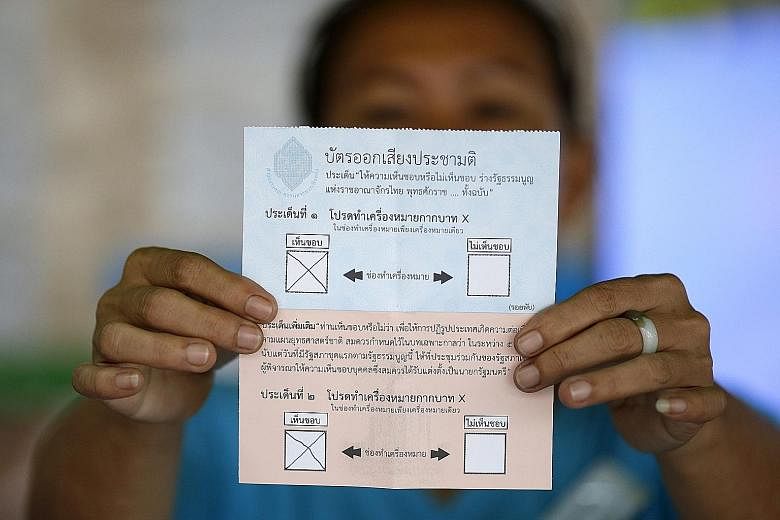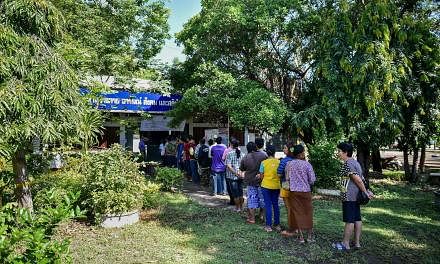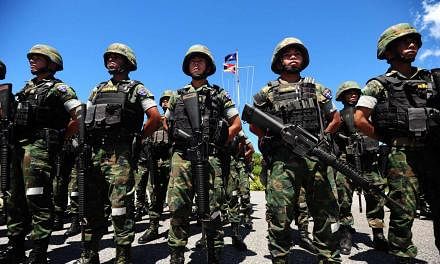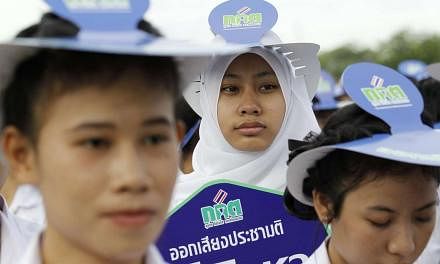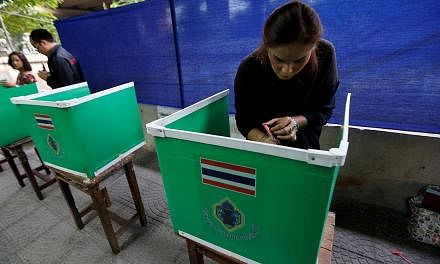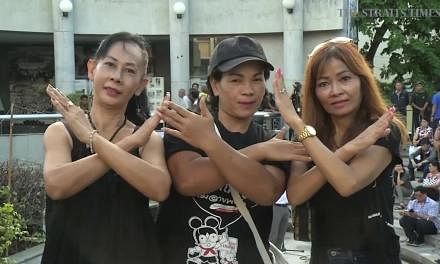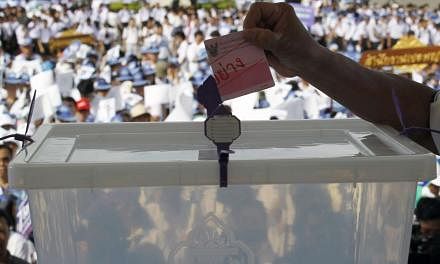The official results of Sunday's referendum will be out only tomorrow, but Thailand's military government has already signalled its intention to move on.
In a statement yesterday, the Foreign Ministry gave the timelines for the approved draft Constitution to be enacted, before elections are held next year.
The ruling junta, which quelled political tumult in Asean's second-largest economy by staging a coup two years ago, may well enjoy a second "honeymoon" period after securing 61 per cent approval for the draft charter it crafted. But it will now face tougher questions over the political restrictions it can ease to pave the way for elections.
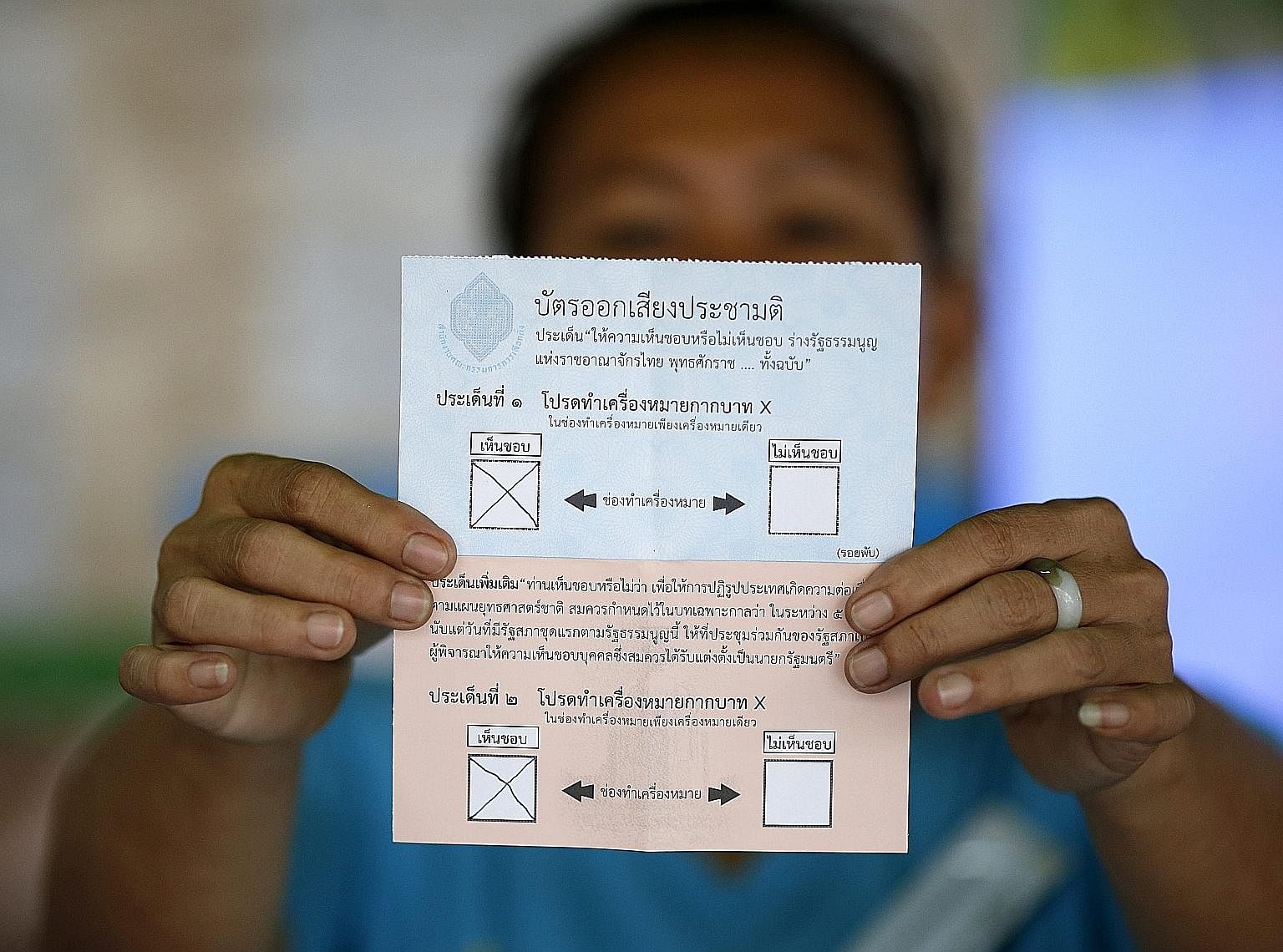
"To have a free and fair election, you have to allow political parties to hold activities," says Dr Prajak Kongkirati, a visiting fellow at the Iseas-Yusof Ishak Institute. "Otherwise the election is going to be meaningless."
For this to happen, the government will need to roll back two years of suppression when political activities were banned and political gatherings were deemed illegal. These conditions, as well as tough laws outlawing messages that "distort" the draft Constitution, allowed the military-controlled state machinery to dominate public messaging in the lead-up to the referendum.
While the authors of the draft charter have sold it as antidote to Thailand's political corruption, critics say it legitimises indefinite military control.
The ruling junta will get to pick almost all the members of a souped-up 250-member Senate during a transitory five-year period. With 58 per cent approval from voters to a second referendum question, this Senate will have the power to join the Lower House in selecting the next prime minister, who need not be elected.
And, unlike the Constitution enacted after a previous post-coup referendum in 2007, this year's version is harder to amend. It will be Thailand's 20th Constitution once it is promulgated.
Much has been said about how few voters actually read the latest 105-page draft Constitution in full, and how few turned up to vote. The election commission estimated the turnout to be between 58 per cent and 60 per cent yesterday.
The hope of moving on - even under imperfect conditions - resonated among voters on Sunday.
"We must have a Constitution first," Mr Nipon Niranon, a 79-year- old retiree in Bangkok, told The Straits Times. "We can amend it later in Parliament."
Such sentiments similarly drove the approval of the 2007 military-backed Constitution, which strengthened the hand of appointed parliamentarians vis-a-vis elected ones. Attempts by the then Puea Thai party-led government to later amend that Constitution triggered opposition, which slid into political chaos leading to the coup.
A look at the voting patterns on Sunday suggests that the fault lines in Thailand's deeply divided society have not changed much since 2007. Much of the Isan or north-eastern region, whose people have long put their faith in Puea Thai and its previous iterations, rejected the draft Constitution. So did voters in the upper regions of northern Thailand, such as Chiang Mai, Chiang Rai and Phrae provinces.
In the restive southern provinces of Pattani, Yala and Narathiwat - where a bomb blast targeting a convoy carrying ballot papers injured three people on Sunday - rejection was also clear.
How the military government handles these tensions against the backdrop of a looming and sensitive royal transition would determine the shelf life of whatever legitimacy it gets from Sunday's results.
Its management of the economy, which grew at a lower than expected 2.8 per cent last year, will also be under scrutiny. Sunday's results improve Thailand's appeal to international investors, but only just. "The 2017 election and a more concrete investment promotion strategy would be a key turning point," said Tisco Economic Strategy Unit economist Charnon Boonnuch. All eyes are now on the coming elections.

